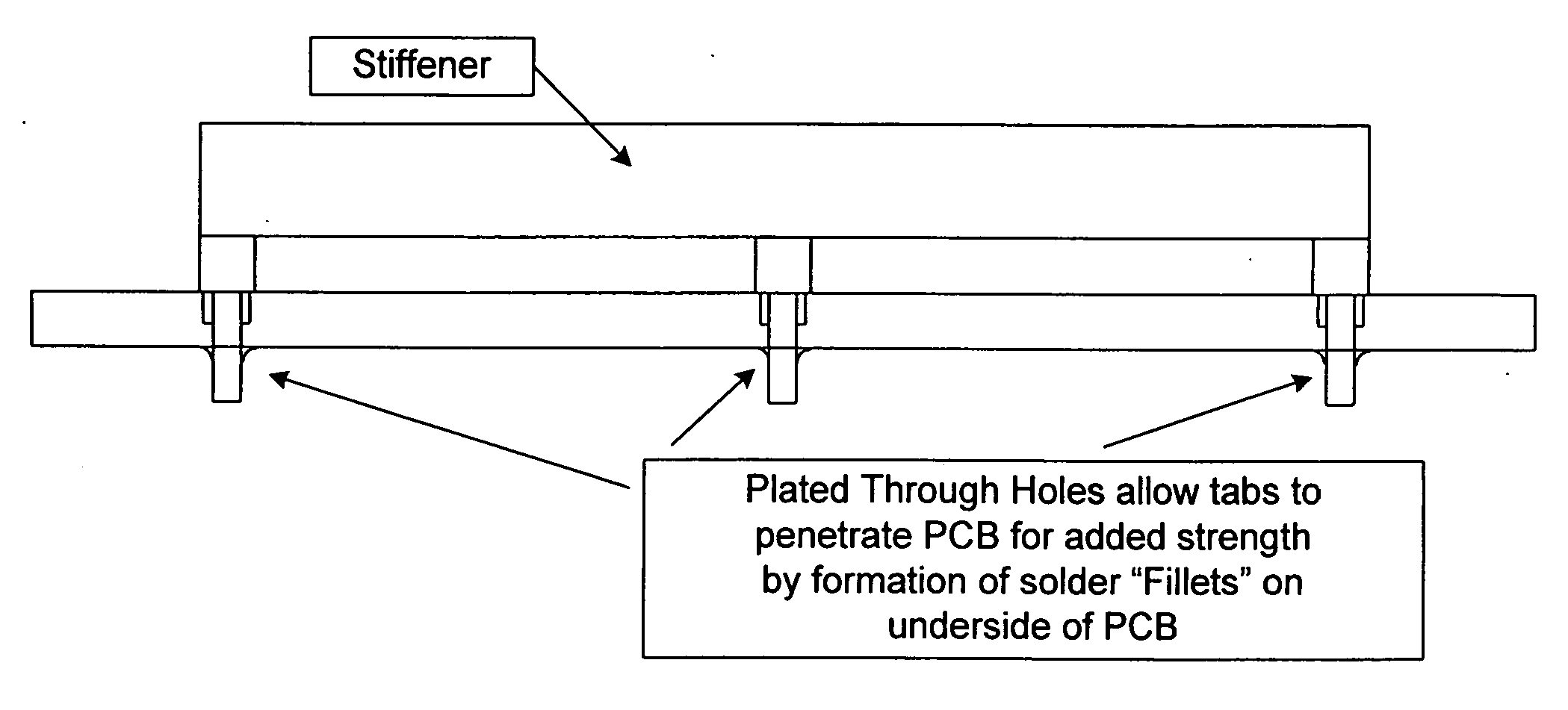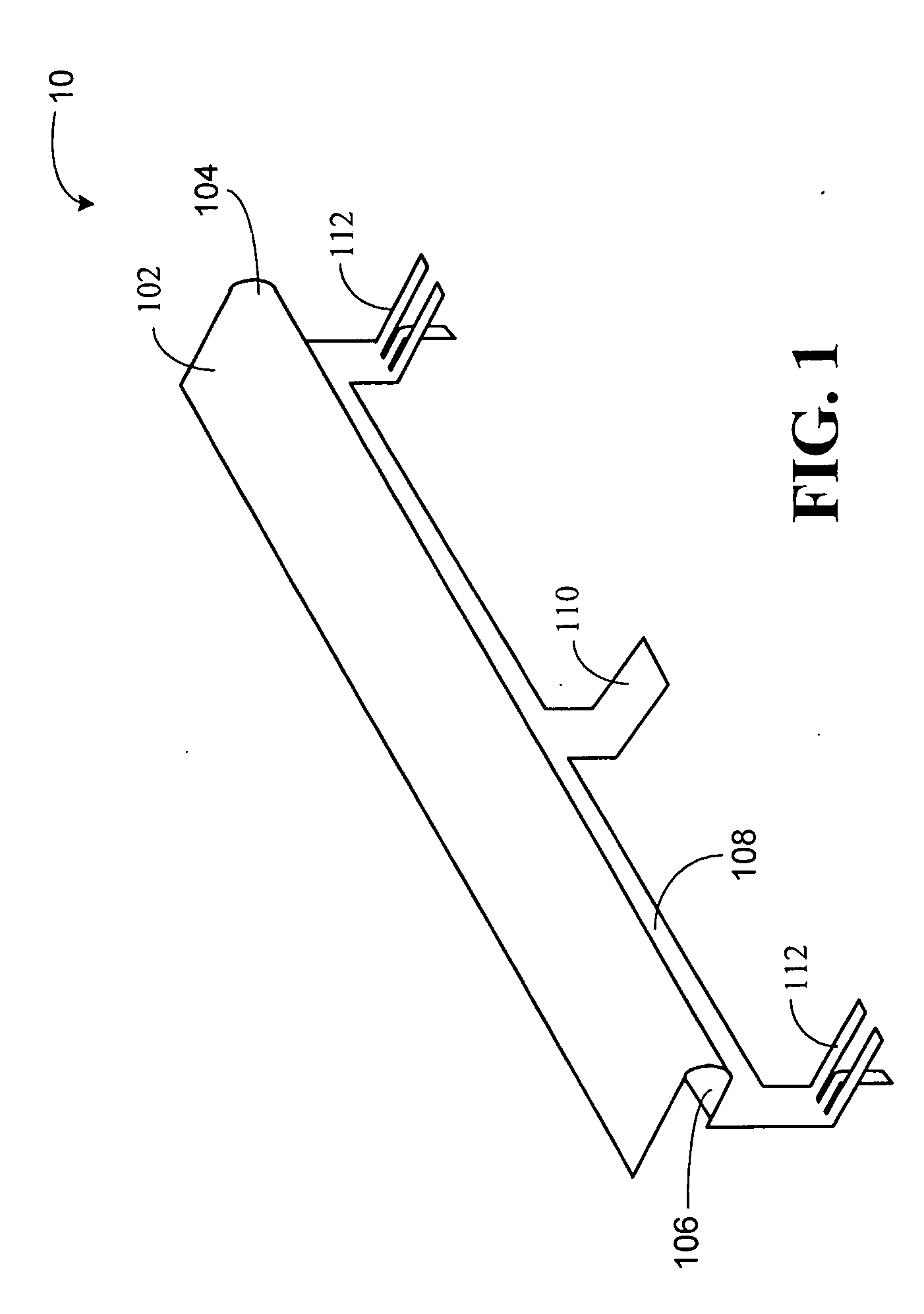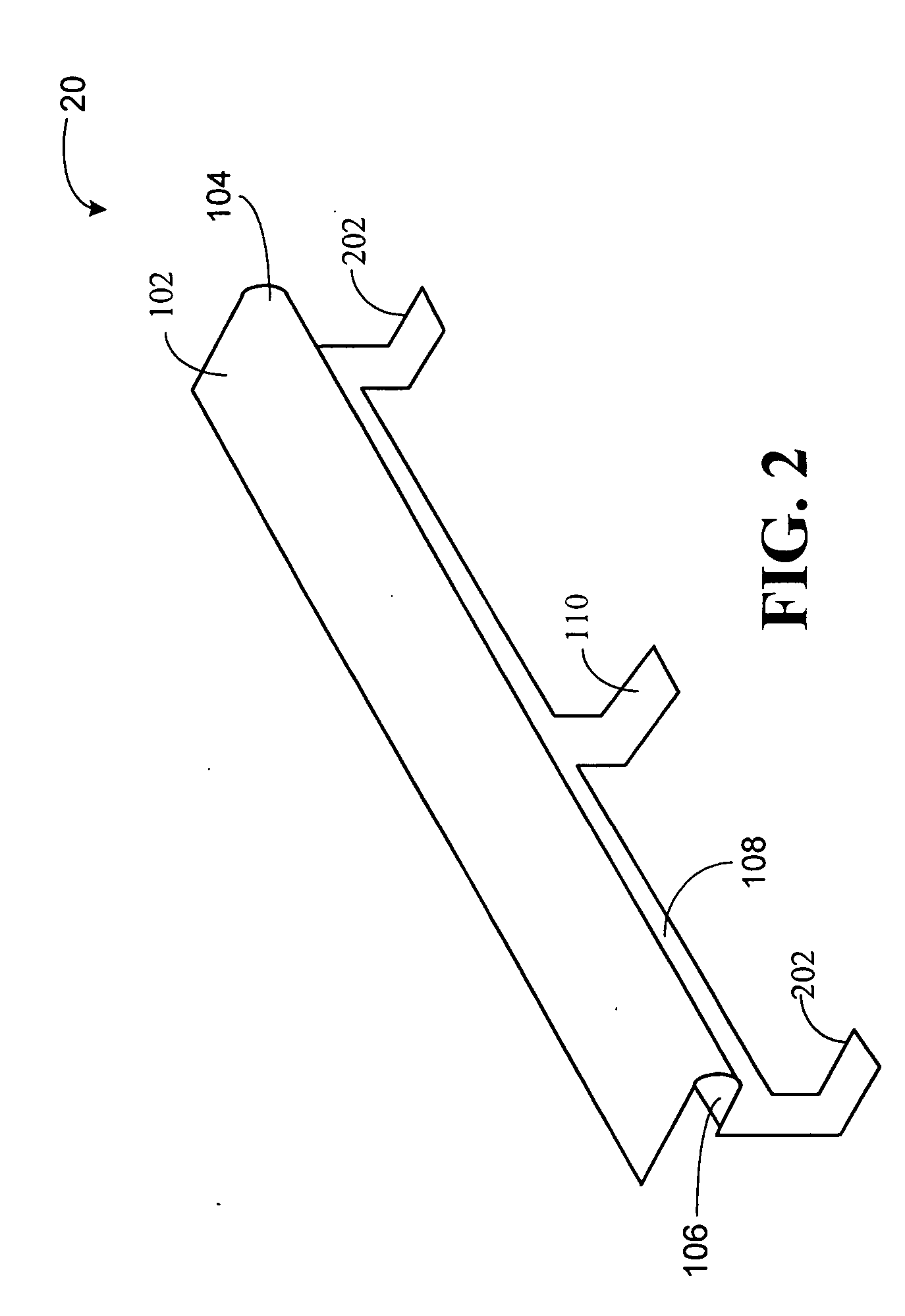Apparatus for stiffening a circuit board
a circuit board and circuit board technology, applied in the direction of electrical apparatus casings/cabinets/drawers, printed circuit non-printed electric components association, manufacturing tools, etc., can solve the problems of connected circuit components being easily damaged or broken, prone to shock and vibration, and flimsy pcbs
- Summary
- Abstract
- Description
- Claims
- Application Information
AI Technical Summary
Benefits of technology
Problems solved by technology
Method used
Image
Examples
Embodiment Construction
[0019] Reference will now be made in detail to presently preferred embodiments of the invention, examples of which are fully represented in the accompanying drawings. Such examples are provided by way of an explanation of the invention, not limitation thereof. In fact, it will be apparent to those skilled in the art that various modifications and variations can be made in the present invention, without departing from the spirit and scope thereof. For instance, features illustrated or described as part of one embodiment can be used on another embodiment to yield a still further embodiment. Still further, variations in selection of materials and / or characteristics may be practiced, to satisfy particular desired user criteria. Thus, it is intended that the present invention cover such modifications and variations as come within the scope of the present features and their equivalents.
[0020] The present invention provides a printed circuit board (PCB) stiffener for overcoming the inhere...
PUM
| Property | Measurement | Unit |
|---|---|---|
| Area | aaaaa | aaaaa |
| Melting point | aaaaa | aaaaa |
Abstract
Description
Claims
Application Information
 Login to View More
Login to View More - R&D
- Intellectual Property
- Life Sciences
- Materials
- Tech Scout
- Unparalleled Data Quality
- Higher Quality Content
- 60% Fewer Hallucinations
Browse by: Latest US Patents, China's latest patents, Technical Efficacy Thesaurus, Application Domain, Technology Topic, Popular Technical Reports.
© 2025 PatSnap. All rights reserved.Legal|Privacy policy|Modern Slavery Act Transparency Statement|Sitemap|About US| Contact US: help@patsnap.com



